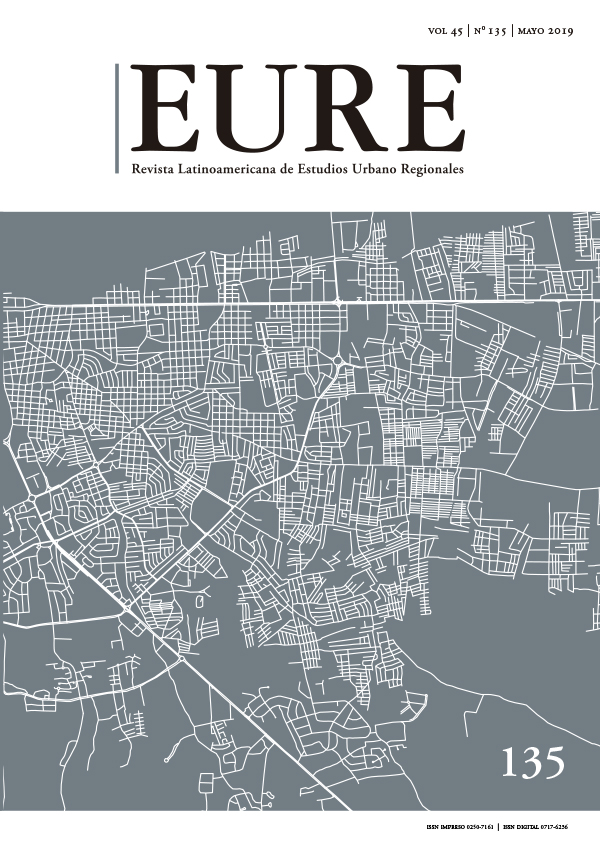Í€œVocíª tem que ter uma casa onde vocíª nasceuÍ€. Cidadania e direito í cidade em Santiago
DOI:
https://doi.org/10.4067/S0250-71612019000200071Palavras-chave:
habitaí§í£o, participaí§í£o cidadí£, conflito socialResumo
No Chile, durante os anos 1990, o Estado do Chile buscou evitar a reaparií§í£o dos movimentos urbanos, recorrendo para isso í construí§í£o massiva de moradia subsidiada. Porém, dito fení´meno ní£o trouxe necessariamente uma melhora nas condií§íµes de vida para os pobres. Para se tornar proprietários, eles foram sistematicamente expulsos de seus bairros de origem, sendo realocados na periferia segregada. Ditas diní¢micas de expulsí£o tíªm gerado a reemergíªncia de mobilizaí§íµes pela moradia em Santiago, nas quais as famílias sem moradia demandam crescentemente o direito de permanecer em seus bairros de origem. Com base em um estudo etnográfico, este artigo propíµe que dita demanda dá conta de uma reconfiguraí§í£o das lutas urbanas materializada, a saber, em dois fení´menos: a) a emergíªncia da demando por direito í cidade; e b) a transformaí§í£o nos modos nos quais os pobres concebem a cidadania e os direitos, isto, com base ao auto-reconhecimento entanto lutadores, esforí§ados e sacrificados.
Downloads
Publicado
Como Citar
Edição
Seção
Licença
Copyright (c) 2019 Revista EURE - Revista de Estudios Urbano Regionales

Este trabalho está licenciado sob uma licença Creative Commons Attribution 4.0 International License.
Al momento de aceptar la publicación de sus artículos, los autores deberán formalizar la cesión de derechos de autor a EURE, según las condiciones establecidas por la Revista.
Ésta establece que el autor autoriza a EURE de manera gratuita, exclusiva e ilimitada a reproducir, editar, publicar, distribuir, publicitar, comercializar y traducir el artículo, a cualquier soporte conocido o por conocer y desarrollar.
Del mismo modo, los autores aseguran que el artículo propuesto es original, no publicado y no propuesto para tal fin a otro medio de difusión.


